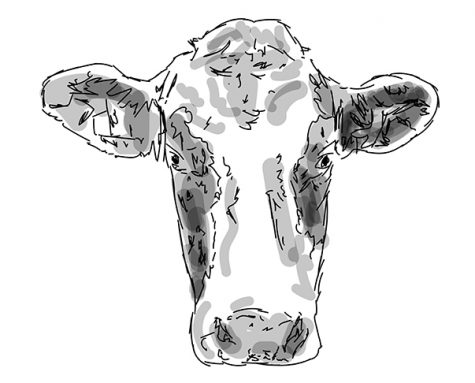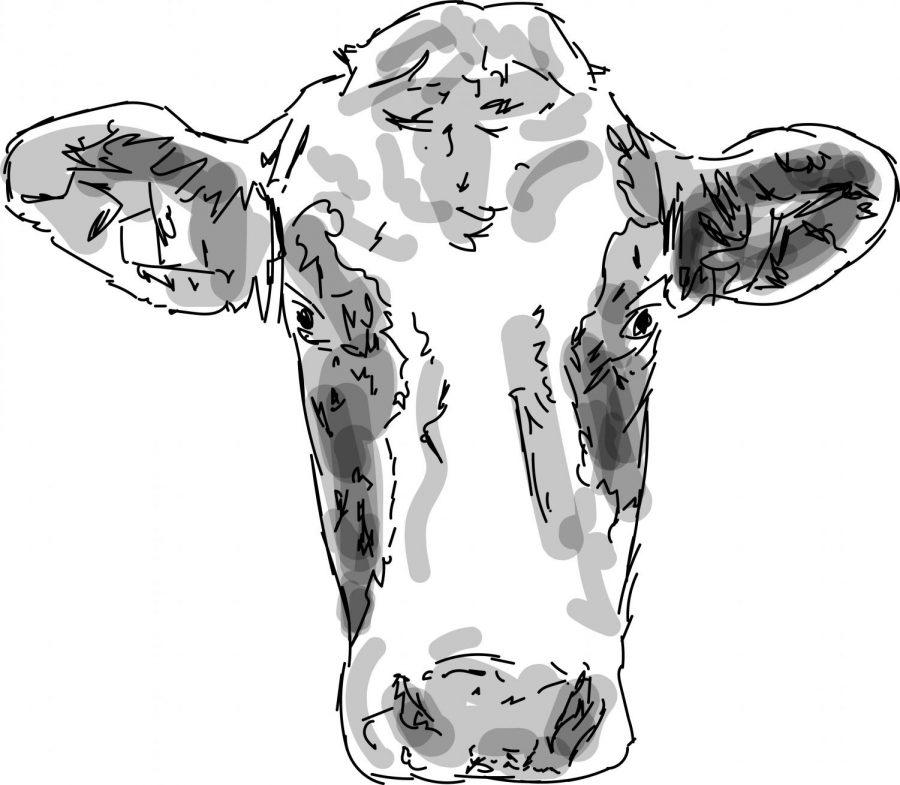Don’t blame cattle for climate change
November 7, 2019

Recently, people have been cracking down on maintaining an eco-friendly lifestyle, as they should.
We carry around trendy metal straws and use biodegradable silverware. We put stickers that say things like “Save the Bees” or “there is no Planet B” on our reusable water bottles.
And recently, people have converted to vegetarianism to reduce their carbon footprint.
The cattle industry is a large contributor to methane buildup in the ozone layer. The industry is one of the nation’s largest consumers of water, according to a 2018 study by the World Wildlife Fund.
So it’s a good idea to switch diets, but it’s unlikely to save the world before it’s too late.
First of all, becoming vegetarian or vegan is not always achievable for certain groups, namely the middle and lower classes.
It’s no secret that fresh fruits and veggies aren’t cheap, and not everywhere is like Vermont with its seemingly endless farmer’s markets.
Food deserts are areas without vendors of fresh fruit and vegetables, according to the U.S. Department of Agriculture.
They are common in southeastern and southwestern states, where poverty rates are high and income rates are low.
People living in food deserts struggle to switch to fresh produce and meat alternatives because there is nowhere to buy them and limited money to buy them with.
Cows are not the only problem this world is facing, and they’re certainly not the biggest.
As of 2017, agriculture caused 9% of national carbon emissions, based on a study by the Environmental Protection Agency.
Cows themselves create a little over 175 million metric tons of methane emissions. In terms of weight, that’s a little under 600,000 Boeing 747s.
On the flip side, 29% of carbon emissions were caused by transportation, according to the same 2017 EPA study.
Fifty-nine percent of these transportation emissions are due to light-duty passenger vehicles, according to the EPA’s Inventory of U.S. Greenhouse Gas Emissions and Sinks. In simpler terms, that’s your Jeep Wrangler.
Fossil fuel combustion alone produced 4,912 million metric tons of carbon dioxide, according to the same study.
If you took those Boeing jets, tripled their weight and then put them on four helicarriers, you’d be about half way there.
The cattle industry does produce an excessive amount of methane gas, but in comparison to the fossil fuel industry, it’s just the tip of the iceberg.
If it’s economically possible and if you’re willing to give up burgers, then go vegetarian. But consider making other changes as well.
Look into alternative energy sources for your home. Shop at thrift stores and avoid contributing to commercial fashion companies.
The clock is ticking. Put down your tofu burger and start shopping for a Prius.








Sarah • Nov 18, 2019 at 10:03 pm
What a misleading article. “Put down your tofu burger and start shopping for a Prius” can people not… do both? Animal agriculture contributes more to climate change than all forms of transportation combined. “The cattle industry does produce an excessive amount of methane gas, but in comparison to the fossil fuel industry, it’s just the tip of the iceberg.”- where are your statistics for this? It’s been thoroughly documented that going vegan is the single best thing a person can do for the environment. Not to mention, it’s also been thoroughly documented that going vegan is absolutely possible on a budget; animal products are luxury items in most countries and are subsidized due to lobbying by environment-destroying industries in the US. If you’re not in a food desert, it’s pointless to use that as a cop out to defer responsibility for your own behavior. I’m not saying you NEED to be vegan to care about the environment, but this article is off-base and misleading.
Andrew Deenik • Nov 15, 2019 at 11:19 am
Well put Sophie.
Simple yet factual.
Another simple alternative is instead of buying a Prius, how about riding your bike to work or school. Or use the public transportation that’s available? Or rideshare!
Ride On
Yours, Andrew D